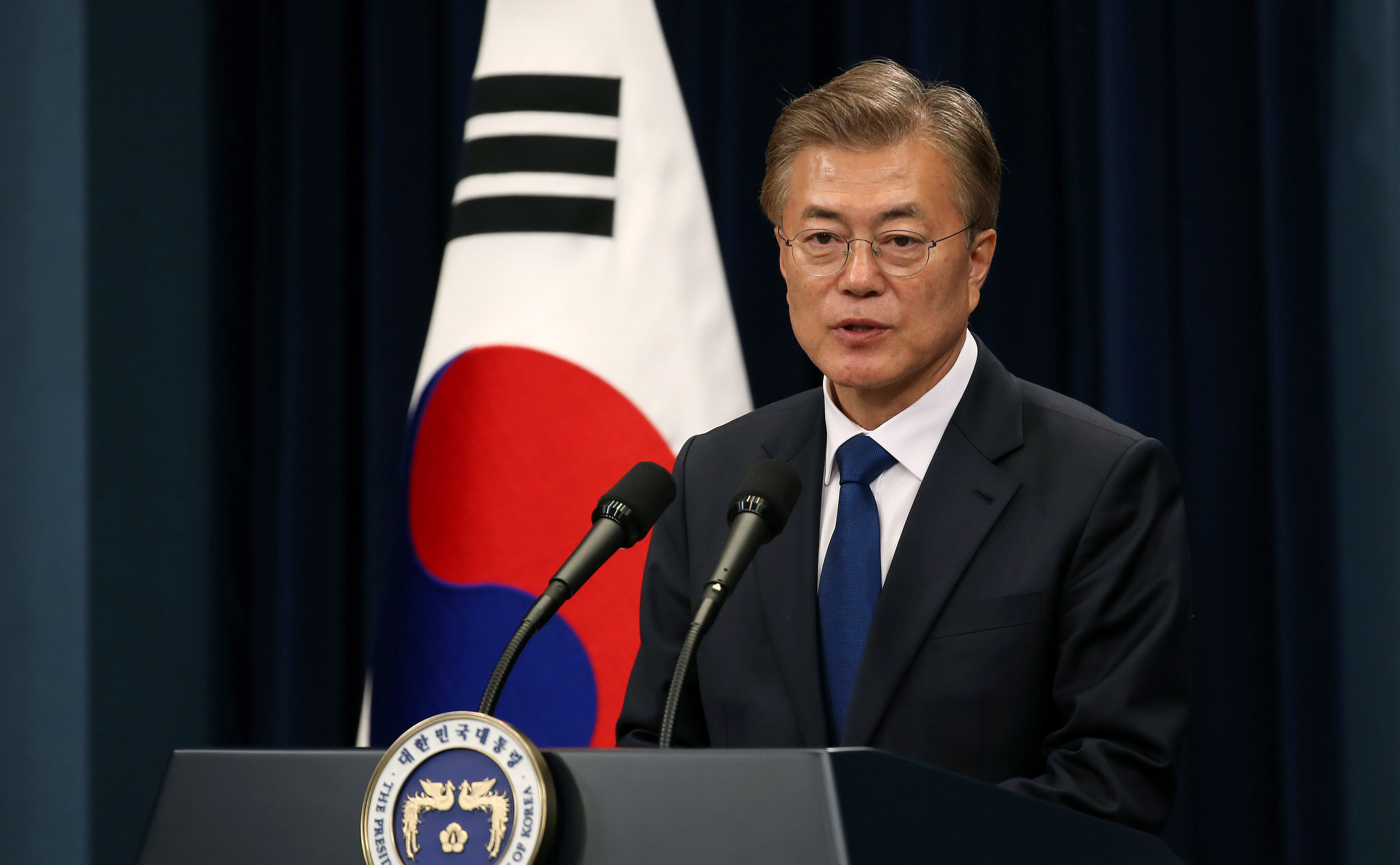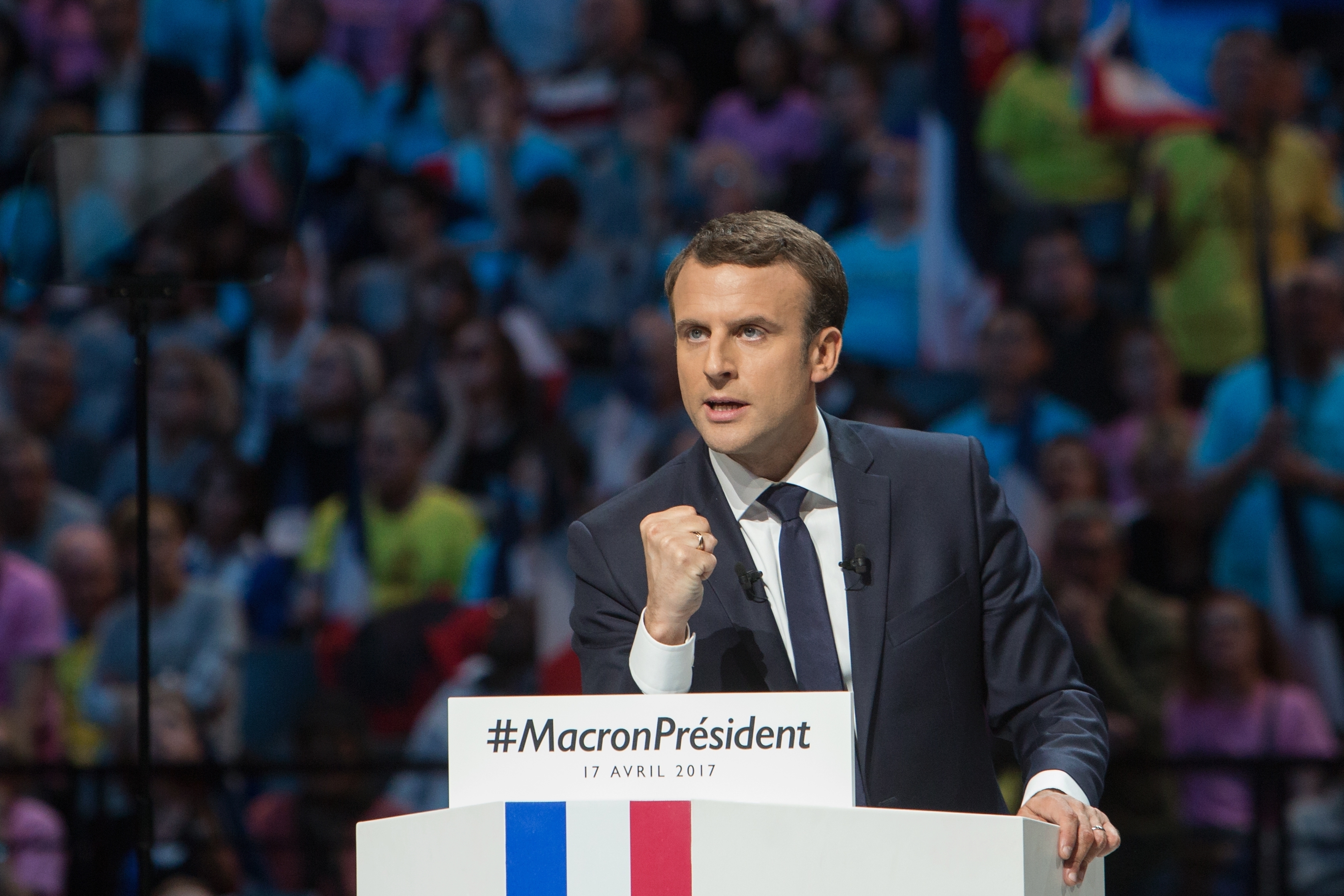What the U.S. Can Learn From the Way South Korea Does Elections
By:
This month South Korea elected former human rights lawyer Moon Jae-in as its new president, following the impeachment and removal of former leader Park Geun-hye.
 Flickr - flickr.com
Flickr - flickr.com
There was at least a 77 percent turnout, which The New York Times reports is the highest there in two decades.
A few days earlier, France elected Emmanuel Macron president, with a turnout of 75.3 percent.
 Associated Press - apimages.com
Associated Press - apimages.com
While this was France's lowest since 1969, it would have marked the highest turnout percentage of registered voters in the U.S. since 1896.
With experts searching for ways to increase voter turnout in the U.S. — in the face of Republican efforts to reduce turnout among traditionally Democratic constituencies — they might consider looking at differences in the way the major media in other countries cover their contests. Indeed, both the South Korean and French media approached their elections much differently than American media did.
One reason often given for low U.S. voter turnout is a lack of enthusiasm for elections that become an endless slog of coverage. For 2016, a survey by Pew found that as many as 60 percent of Americans already had election fatigue – in July, months before the actual vote. Much of this coverage was either deadly serious, or obsessed with salacious details. People wound up hating it, and it's likely some didn't vote because of it.
By contrast, South Korea's election, which was no less serious than America's, was covered with what Foreign Policy magazine called "a slew of elaborate election graphics and animated shorts referencing popular culture, including Pokémon, "Rocky," “Street Fighter,” and dabbing, among others."
While it can't be conclusively proven that the cheeky enjoyment provided by South Korean graphics spurred voter turnout, it shows the ability of both the media and the electorate to have a little fun with the process — something sorely lacking in the United States.
For example, would something like this, a "Rocky"-esque training montage of the two leading candidates chasing each other through Seoul, have spurred more Americans to vote in 2016?
It might or might not have, but it might have made people feel a little less stressed out about an election that caused enormous tension in the country for nearly two years, and ended with a great many people worried about the future of the country.
South Korea has one of the highest voter turnout rates in the developed world, and each election brings its own set of wacky graphics and ways for voters to have a little more fun with the process. For example, the country's legislative election in 2016 saw one network roll out graphics for each race that showed the winners celebrating and dancing, and the losers fuming and scowling.
While France's high turnout in 2017 can't be chalked up to wacky graphics, there was something else that might have effected voter turnout in a positive way: a media blackout.
Starting at midnight on Saturday, and running for 44 hours, French media goes into what's called a "discretionary period" meant to prevent it from having undue influence over the race. The blackout bans any interviews or statements by the candidates, as well as comments about polls, results of early voting, and other forms of "electoral propaganda."
In this case, the ban stopped any kind of commentary about a major dump of hacked documents allegedly detailing the inner-workings of the Macron campaign. French media outlets respected the law and ignored the dump — which ended up not containing any scandalous information — and voters paid little attention to it, with the result of the election likely being unchanged.
That's a stark contrast to the hacked and dumped emails from the Democratic National Committee, which the U.S. media covered relentlessly for weeks. Even The New York Times seemed to belatedly realize it had overstepped, calling the email hack coverage "the media's worst mistake of 2016."
So while our year-long primary process naturally brings a glut of coverage, it could be lighter, like South Korea, or back away from salacious non-stories, like France. This might contribute to less of a feeling of early burnout, and spur more people to go to the polls.
